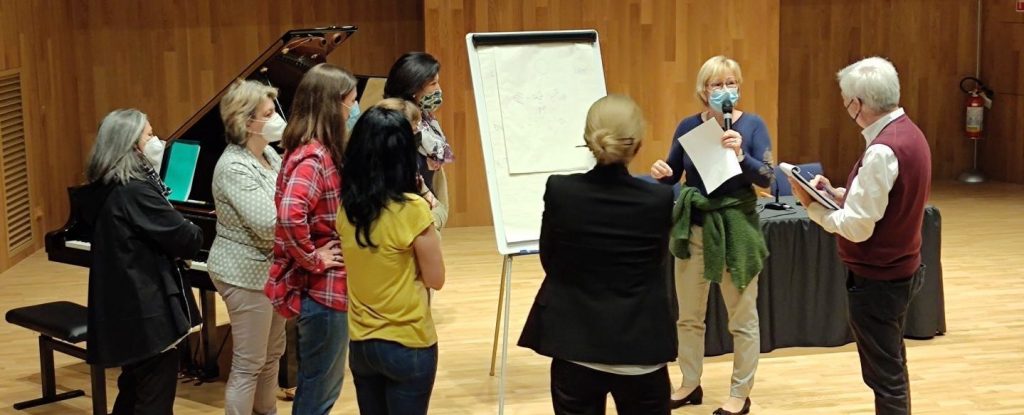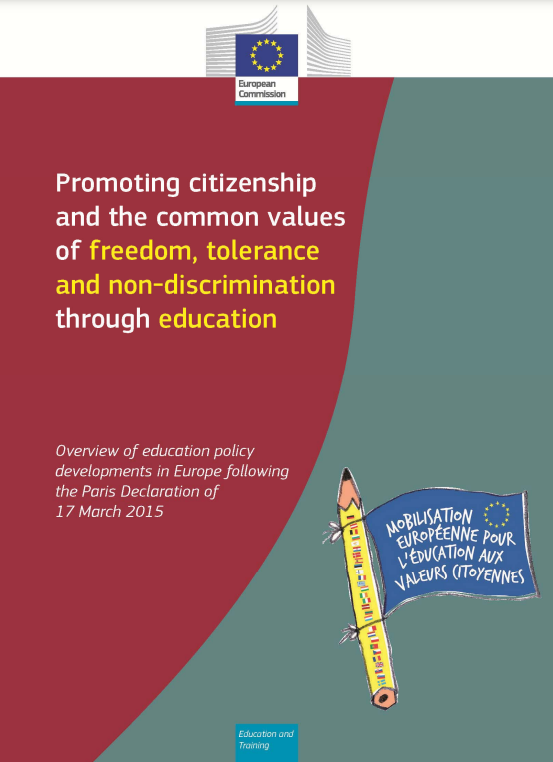Concept
Background
The need to test new ways of helping school children and teachers to develop key competences is widely recognised by education policy makers and international institutions like the EU, OECD, UNESCO and the Council of Europe. The recent Conferences on “Supporting key competences development” (Brussels, 12-13 November 2019), “Fusion Cities” (London, 9th October 2020) and the presentation of the OECD Education 2030 Framework are examples of the consensus reached, at the policy and expert levels, on the need to change traditional teaching methods if transversal key competences are given the adequate importance. Not always this need is clearly perceived at the grassroots level, where discipline-based curricula and strict timetables tend to dominate the school routines. When schools, teachers, parents and students perceive the need of changing learning strategies and putting transversal key competences at the heart of teaching and on the front line of learning objectives, a promising process can start.
OECD Learning Compass 2030
The OECD Learning Compass 2030 is an evolving learning framework that sets out an aspirational vision for the future of education. It provides points of orientation towards the future we want: individual and collective well-being. The metaphor of a learning compass was adopted to emphasise the need for students to learn to navigate by themselves through unfamiliar contexts.
REFERENCE FRAMEWORK OF COMPETENCES FOR DEMOCRATIC CULTURE
Volume 1: Context, concepts and model
REFERENCE FRAMEWORK OF COMPETENCES FOR DEMOCRATIC CULTURE
Volume 2: Descriptors of competences for democratic culture
REFERENCE FRAMEWORK OF COMPETENCES FOR DEMOCRATIC CULTURE
Volume 3: Guidance for implementation
Aim
The Project has the ambition to propose and experiment a holistic method to develop key transversal competences (cultural awareness and expression, citizenship, multilingual, digital, entrepreneurship, personal, social and learning) through a transnational experience of developing a cultural product (a piece of theatre, a musical, an exhibition including students’ performance, a multimedia work, etc.) including historic research, literature and art history, music, performing arts and digital skills.
Development
Starting from the analysis and reconstruction of the life and works of local celebrities, or historical episodes connected to local history, secondary schools of different countries will collaborate in the development of parallel cultural products, learning from one another and being supported by families engagement and some specialised partners that will respectively help develop the performing arts and the intercultural and democratic citizenship skills. Each of the chosen histories will be presented to each other school to allow the understanding of the history of other countries and adding a different perspective to the discovery of European cultural heritage.

Participants
- Students of lower and upper secondary schools who will be directly involved in the conception and development of cultural products
- Teachers of different disciplines (history, art, music, languages, digital technology, science and environment, etc.).
- Parents who will be invited to encourage and support their children in an innovative transnational learning experience which is aimed at developing a rich set of key competences for further studies, but also for life and active citizenship.
The PERFECT partnership strongly believes that such an approach has the potential to lead to a deeper understanding of each other’s heritage and history, thus supporting the achievement of what the EU Ministers of Education have called for in the 2015 Paris Declaration on Promoting citizenship and the common values of freedom, tolerance and non-discrimination through education. Building on the mutual knowledge of local history is a simple but effective way to recognise commonalities and relationships between European peoples, and to value the achievements of the European Union in terms of peace, mutual respect and joint development towards a common future. This is in line with the required actions towards achieving the goals of the European Education Area, especially in the field of common European values.

This project has been funded by the Erasmus+ programme of the European Union. Convention No. 2021-1-IT02-KA220-SCH-000027801.
